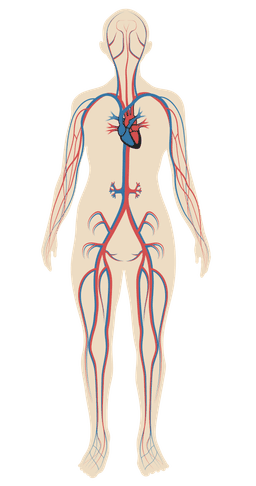Myths about teaching can hold you back
- Year 10
- OCR
- Foundation
Effects of exercise on pulse rate
I can describe how to measure a person’s pulse rate before and after exercise and calculate their recovery time.
- Year 10
- OCR
- Foundation
Effects of exercise on pulse rate
I can describe how to measure a person’s pulse rate before and after exercise and calculate their recovery time.
These resources were made for remote use during the pandemic, not classroom teaching.
Switch to our new teaching resources now - designed by teachers and leading subject experts, and tested in classrooms.
Lesson details
Key learning points
- How to measure pulse rate.
- How to control the type and duration of exercise to be undertaken by a test subject.
- Record resting pulse rate before exercise and take repeated measurements of pulse rate after exercise.
- The recovery time is the time it takes for the pulse rate to return to the resting rate after exercise.
Keywords
Pulse rate - The number of heart beats (pulses) per minute.
Resting pulse rate - The number of times your heart beats when at rest.
Recovery time - The time it takes for the heart rate to return to the resting rate after exercise.
Common misconception
Pupils may think that people are either healthy or unhealthy.
Health is a range from good to ill. Fitness is one indicator of general health.
To help you plan your year 10 combined science lesson on: Effects of exercise on pulse rate, download all teaching resources for free and adapt to suit your pupils' needs...
To help you plan your year 10 combined science lesson on: Effects of exercise on pulse rate, download all teaching resources for free and adapt to suit your pupils' needs.
The starter quiz will activate and check your pupils' prior knowledge, with versions available both with and without answers in PDF format.
We use learning cycles to break down learning into key concepts or ideas linked to the learning outcome. Each learning cycle features explanations with checks for understanding and practice tasks with feedback. All of this is found in our slide decks, ready for you to download and edit. The practice tasks are also available as printable worksheets and some lessons have additional materials with extra material you might need for teaching the lesson.
The assessment exit quiz will test your pupils' understanding of the key learning points.
Our video is a tool for planning, showing how other teachers might teach the lesson, offering helpful tips, modelled explanations and inspiration for your own delivery in the classroom. Plus, you can set it as homework or revision for pupils and keep their learning on track by sharing an online pupil version of this lesson.
Explore more key stage 4 combined science lessons from the Health and disease unit, dive into the full secondary combined science curriculum, or learn more about lesson planning.

Equipment
Stop watch, graph paper
Content guidance
- Risk assessment required - equipment
- Risk assessment required - physical activity
Supervision
Adult supervision required
Licence
Prior knowledge starter quiz
6 Questions
Q1.Match the variable to its description.
The variable that you change.
The variable that you keep the same.
The variable that you measure.
Q2.Which changes would you experience during exercise?
Q3.What type of blood vessel transports blood away from the heart?
Q4.What makes up the circulatory system?



